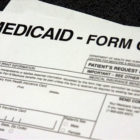How Long Does It Take to Get Approved for Medicaid?

Approval time for Medicaid applications varies depending on factors such as the complexity of your application, the completeness of your application, the state you live in, etc. In some states, the determination takes a few weeks; in others, it takes several months.
In most states, Medicaid applications take about 45-90 days to get a determination. However, it can take up to 90 days or longer. For instance, if your application requires a disability determination, it can take up to 90 days.
If you do not provide all the necessary information and documentation, there will be back and froths between you and the Medicaid agency resulting in the process taking months.
When Is the Best Time to Apply for Fast Approval?
No specific time is ideal for applying for Medicaid coverage for fast approval. Medicaid enrollment is open throughout the year. The best time to apply for Medicaid is as soon as you determine that you need the health coverage, depending on your medical situation and the complexities of your finances.
The sooner you apply for Medicaid coverage, the sooner you will be approved, as long as you meet the Medicaid eligibility criteria and apply accordingly.
That said, there are specific times of the year when there might be delays in the approval process for this medical assistance, particularly in June and July.
Tips for Getting Your Application Approved Fast
Below are some tips for getting your Medicaid application approved fast.
- Confirm your Medicaid eligibility. Medicaid eligibility mainly depends on your income level and assets portfolio. Each state has a different income limit depending on monthly income and its percentage of the federal poverty level. Before applying for Medicaid coverage, check the eligibility requirements in your state and whether you meet them for a Medicaid state plan.
- Consult with a Medicaid worker. If you are unsure whether you meet the eligibility requirements for this health coverage, seek advice from a Medicaid worker or visit the agency near you to help determine your eligibility for a health plan. The Medicaid worker can also help individuals with the application process.
- Complete the Medicaid application process accurately. Normally, the Medicaid application process involves filling out an application form and providing the relevant documentation. Answer the eligibility questions in the application form thoroughly, providing all the details required. You will also be required to provide proof of citizenship, residency, and income level for Medicaid eligibility. You must provide documentation for your cash, stocks, bonds, savings, checking, and credit union account statements, non-primary vehicles, pension payments, social security income, IRA withdrawals, stock dividends, alimony payments, veteran benefits, etc. The Medicaid state agency may also ask for a face-to-face interview to confirm your identity and clarify some details in your application. Failure to provide the necessary documentation can delay the approval process significantly or even cause your application to be denied.
- Submit the application through one of the recommended channels by your state Medicaid agency. You can submit the application through different channels, including online, via mail or fax, or in person at your Medicaid office. Different states recommend specific channels for submitting your application. Contact your local Medicaid office or check your state’s Medicaid website to establish the best methods for submitting your application.
- Follow up on your application. Upon submission, contact the local Medicaid office to determine how long the approval is expected to take. Contact the Medicaid office regularly throughout the processing time to follow up on the status of your application process. The constant communication will enable you to quickly address any issues during the application process for the Medicaid program.
- Provide any additional information required as soon as possible. Doing so will prevent any further delays in the determination of your application for the Medicaid program.
What If Your Medicaid Application Is Denied?
It is not uncommon for a Medicaid application to be denied. If that happens, there are a few options to move forward. The first step is to review the denial letter to determine why your application for Medicaid benefits was denied.
An appeal could resolve the denial if the denial of Medicaid benefits was due to a simple error. If there are more complicated reasons for denial to this health insurance program, consult with a Medicaid worker to help determine if you would be eligible for an appeal and how to proceed.
However, if appealing is not possible, consider other alternatives for Medicaid, including private health insurance, other state or federal government-funded healthcare programs such as CHIP and Medicare, short term health insurance, low-cost health care plans, community health clinics, etc.,
Conclusion
Determination of Medicaid applications for health care coverage generally takes 45-90 days. It can take shorter or longer depending on the state and your application’s complexity.
The key to expediting the application is to confirm that you are eligible for Medicaid services, provide accurate and complete information on the application process, and provide all the necessary supporting documentation.
It is also recommended to regularly follow up with the Medicaid office on the most up-to-date information about your application.



